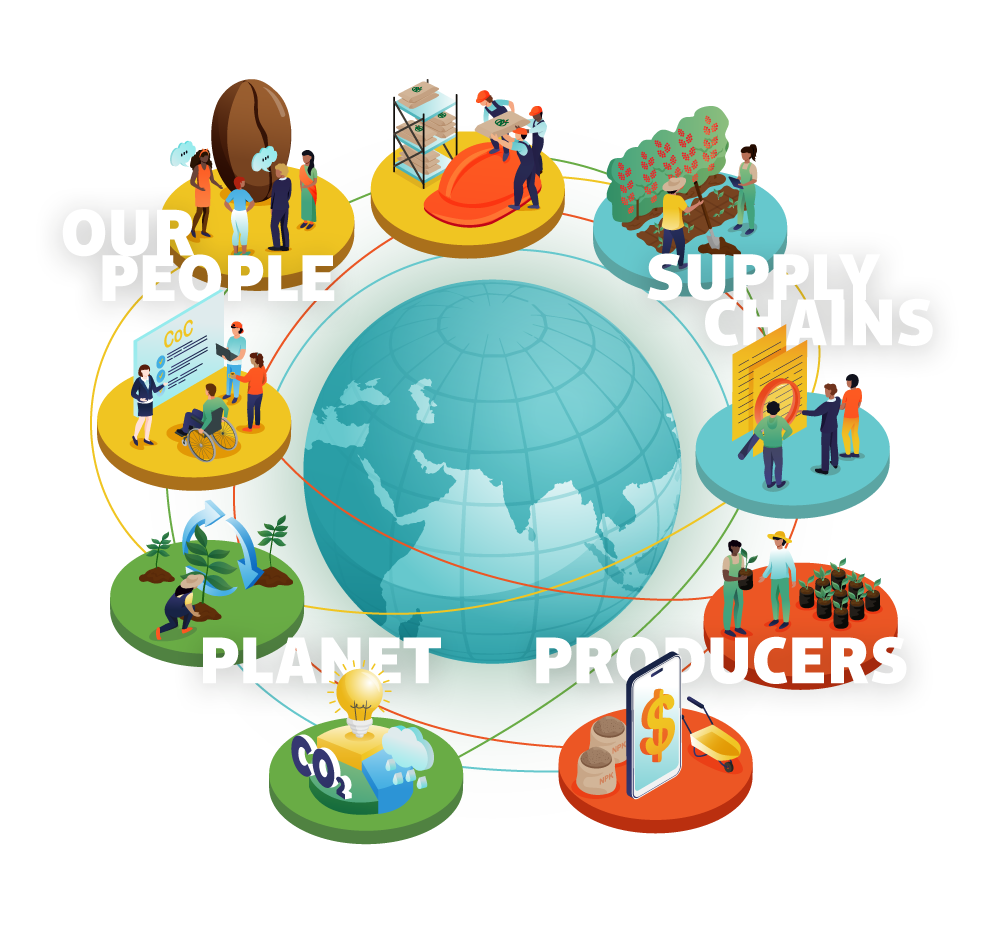Producers

6
IMPROVE FARMER LIVELIHOODS THROUGH VALUE-ADDED SERVICES
Ensuring the future of coffee hinges on making it a viable business for everyone involved, starting with the farmers. In light of climate change, migration, and the volatility of coffee prices, many smallholder farmers struggle to ensure a decent living for their families. To adapt to the growing complexity of coffee production they must be able to run their farms as businesses. At NKG, we are committed to helping them maneuver around current and future challenges and support their efforts to build a sustainable future in coffee farming.
Smallholder farmers and farmer services
Smallholder farmers are the backbone of the coffee industry. Approximately 80% of the world’s coffee is produced by 12.5 million smallholder producers. However, global challenges such as climate change and rising interest rates pose major threats to the viability of their businesses, undermining not only the livelihoods of their families but also jeopardizing the future of coffee as a whole. Beyond the apparent influence of coffee prices, farmer services help to ensure that producers work profitably while safeguarding the future of the coffee supply. Due to each country and region having its own unique challenges and needs, there cannot be a one-size-fits-all solution for farmer services. These need to be tailored to the specific conditions of each country in order to be effective.
The image below not only illustrates the different circumstances of coffee farmers in different countries and regions, but also shows the many and varied challenges they face.
Diverse challenges in producing countries
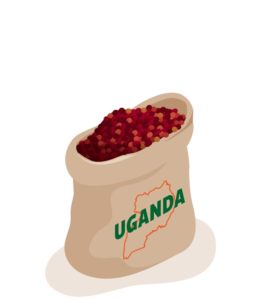
0.3 ha
Average
farm size
450 kg/ha*
Average
smallholder productivity
Uganda
TYPICAL CHALLENGES
- Low Productivity
- Lack of Access to High Quality Inputs
- Small Plot Sizes
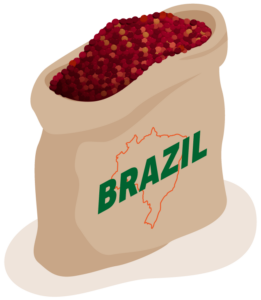
5 ha
Average
farm size
1,674 kg/ha*
Average
smallholder productivity
Brazil
TYPICAL CHALLENGES
- Soil Erosion and Degradation
- Climate Change
- Pests and Diseases
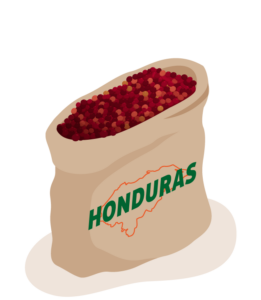
2.2 ha
Average
farm size
1,000 kg/ha*
Average
smallholder productivity
Honduras
TYPICAL CHALLENGES
-
Lack of Access to Affordable Financing
-
Knowledge Gaps and Limited Availability of Training
-
Migration of Workforce
Note: The definition and characteristics of a smallholder and their farm vary greatly between different origins. This underlines the diversity of the challenges and the need for tailored solutions.
*Source: Enveritas (2018), How many coffee farmers are there? Global coffee farm study.
Supporting Farmers through NKG Bloom
NKG’s answer to these challenges is NKG Bloom, our sustainable sourcing initiative. An integral part of this initiative are the Farmer Service Units (FSUs), which offer individual value-added services for smallholders and farmer groups embedded in our export operations. These services – currently provided by more than 150 motivated colleagues – include training in coffee farming, business best practices, and access to markets, infrastructure, seedlings and financing. This makes NKG Bloom well equipped to fulfill the needs of producers and deliver tangible impact on farms.
Spotlight: NKG Bloom in East Africa
Context
In East Africa, NKG Bloom is active in Uganda and Kenya. It was established in both countries in 2019 by Ibero Uganda Ltd (Ibero) and Tropical Farm Management Kenya (TFMK), highlighting the commitment of the company to invest in farmer service packages. The services that Ibero and TFMK provide to producers in their supply chain reflect the different degrees of farmer organization and the characteristics of the producer:
In Kenya, TFMK provides services to large cooperatives representing thousands of producers. Service packages are therefore tailored to the needs of cooperatives to create subsequent value for their members. This includes support in upgrading processing and quality infrastructure, for instance, coffee washing stations or drying facilities, agronomic advice from agronomists enmeshed in the cooperative involvement, and support in digitizing cooperatives’ internal systems.
In comparison, Ibero deals with large numbers of individual smallholder producers in Uganda directly. As such, NKG Bloom service packages are tailored to the needs of the individual producers. The highest priority for most producers is improved access to finance, ranging from instant cash advances to medium and long-term loans for farm-related investments, and access to high-quality fertilizers. Ibero provides these services integrated into a system of technical assistance and training.
Looking back
In 2023, Ugandan coffee producers faced challenges related to skyrocketing global interest rates and high inflation, increasing costs of living and making farm investments more expensive. Also, continuously high fertilizer prices increased production costs. At the same time, the growing global demand for Robusta coffee resulted in higher market prices and increased producer revenues, thereby providing farmers with more resources to cover production and living costs. Ibero Uganda reacted to the ambivalent conditions by diversifying its fertilizer suppliers, to be able to provide high-quality fertilizer at affordable costs, as well as adapting its portfolio of financial services. Its efficient framework for financing operations enabled Ibero Uganda to absorb some of the interest-rate increases, protecting producers from some of the additional interest-rate costs.
In Kenya, heavy regulatory changes in the coffee sector led to TFMK having to rethink farmer service delivery models to be able to create value for Kenyan coffee producers. With the new regulation limiting the company’s ability to offer certain support services such as direct financing and marketing, TFMK decided to focus its efforts on enhancing the agricultural practices of cooperatives. This included providing access to certification, strengthening processing capacities through tools such as efficient Ecopulpers or metal drying tables, and improving internal information and management systems.
Spotlight: NKG Bloom in Central America
Mexico
Rubelsi Gonzalez Roblero
NKG Bloom Mexico
Context
In Central America, NKG Bloom is established in Mexico and Honduras. Active since 2019 in Mexico, NKG Bloom is building on the successful Exportadora de Café California’s (ECC) Por Más Café Program, which was initiated in 2014 to provide support to producers in light of the coffee rust crisis. Support services have been tailored to ensure sustainable recovery and secure coffee production as viable business source for the future, being geared towards individual producers and cooperatives alike.
In Honduras, Beneficio de Café Montecristo S.A. (Becamo) identified early on the absence of a holistic coffee plot renovation program as one key constraint for safeguarding coffee production in Honduras. Based on this assessment, Becamo developed their flagship initiative “Recuperando mi Cafetal” (Recovering my Coffee Garden), now a cornerstone of NKG Bloom in Honduras.
Looking back
Honduras and Mexico were subject to the weather phenomenon known as El Niño, which distorted the regular weather patterns and affected farming cycles. For example, delays in rain delayed the nutrient intake of coffee plants, thereby affecting vegetative development and plant productivity. Both countries struggled with continuous outward migration, putting the continuity of coffee production in some coffee regions in doubt.
Even before the capricious weather conditions put the importance of climate into the spotlight, ECC and Becamo had already leveraged their NKG Bloom structures to boost climate change mitigation/adaptation and for the safeguarding of natural resources. ECC doubled down on its efforts to provide high-quality seedlings to producers. Seedlings grown in ECC’s own tree nursery are more resistant to changing climate patterns and also have a higher resistance to certain diseases, resulting in fewer agrochemicals being needed. ECC also supported cooperatives to install water-saving processing equipment.
Becamo boosted its efforts to reduce emissions from coffee production through intensified producer support in the decentralized production and application of organic fertilizers and crop stimulants on a community level. As part of its renovation program, Becamo promoted the use of the environmentally friendly Ecopil technology and drove the development of resilient and biodiversity rich agroforestry systems.
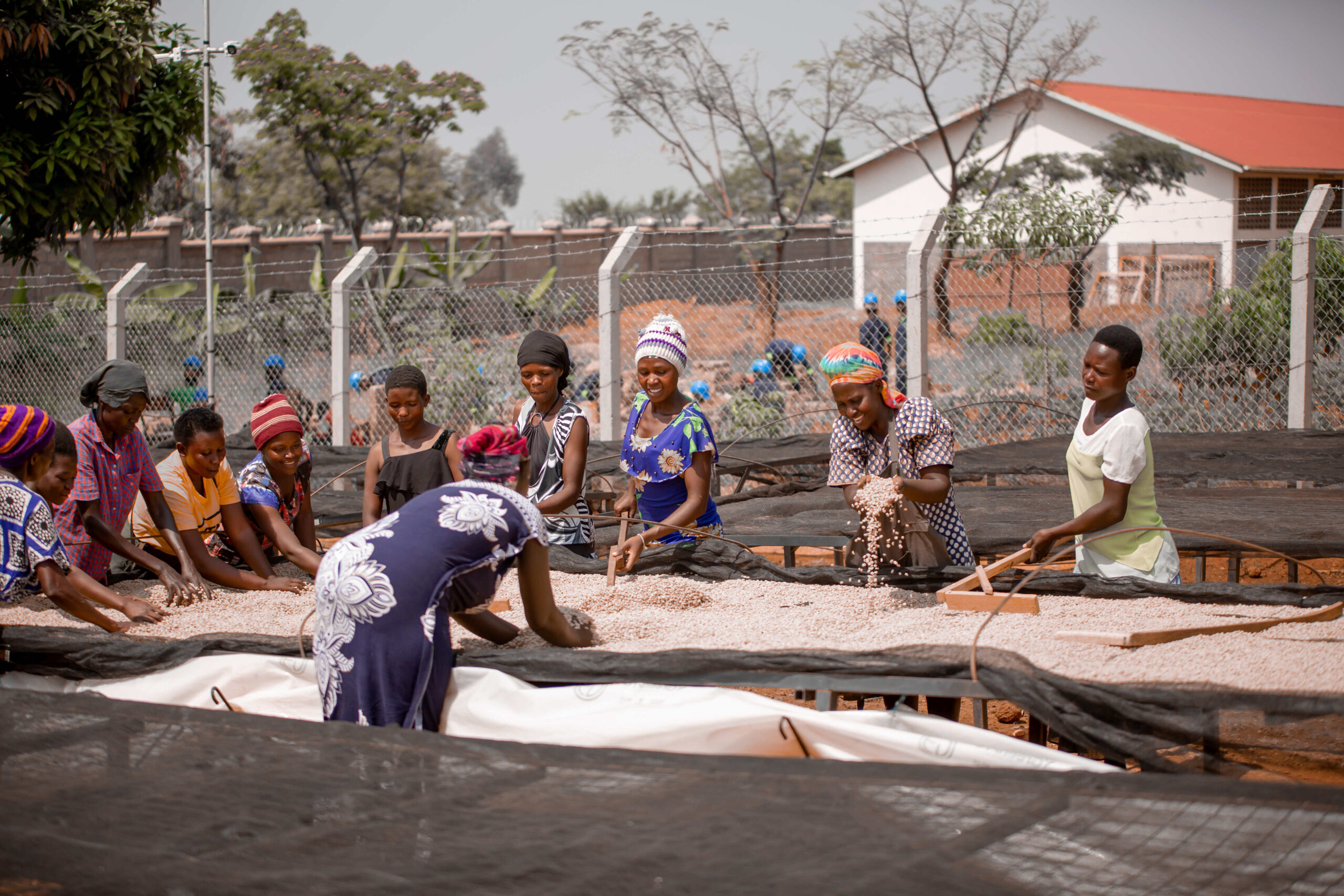
NKG Bloom's Tangible Impact
NKG Bloom and the services that NKG companies provide to coffee producers are embedded in an impact framework, resulting in services that directly and indirectly affect farmer livelihoods on a positive level. The NKG Bloom impact framework acknowledges the complex interactions and causalities related to farmer livelihoods, including economic, environmental and social dimensions. Through this framework, services that NKG companies provide to farmers contribute to the United Nations Sustainable Development Goals. This contribution is regularly monitored by NKG in cooperation with its partners. NKG Bloom is acknowledged as a viable sustainability scheme under the Global Cffee Platform’s Equivalence Mechanism. By 2030, we aim to establish Farmer Services Units in 10 countries, thereby providing value-added services to 300,000 smallholder farmers.
RELATED
sustainable
development
goals
